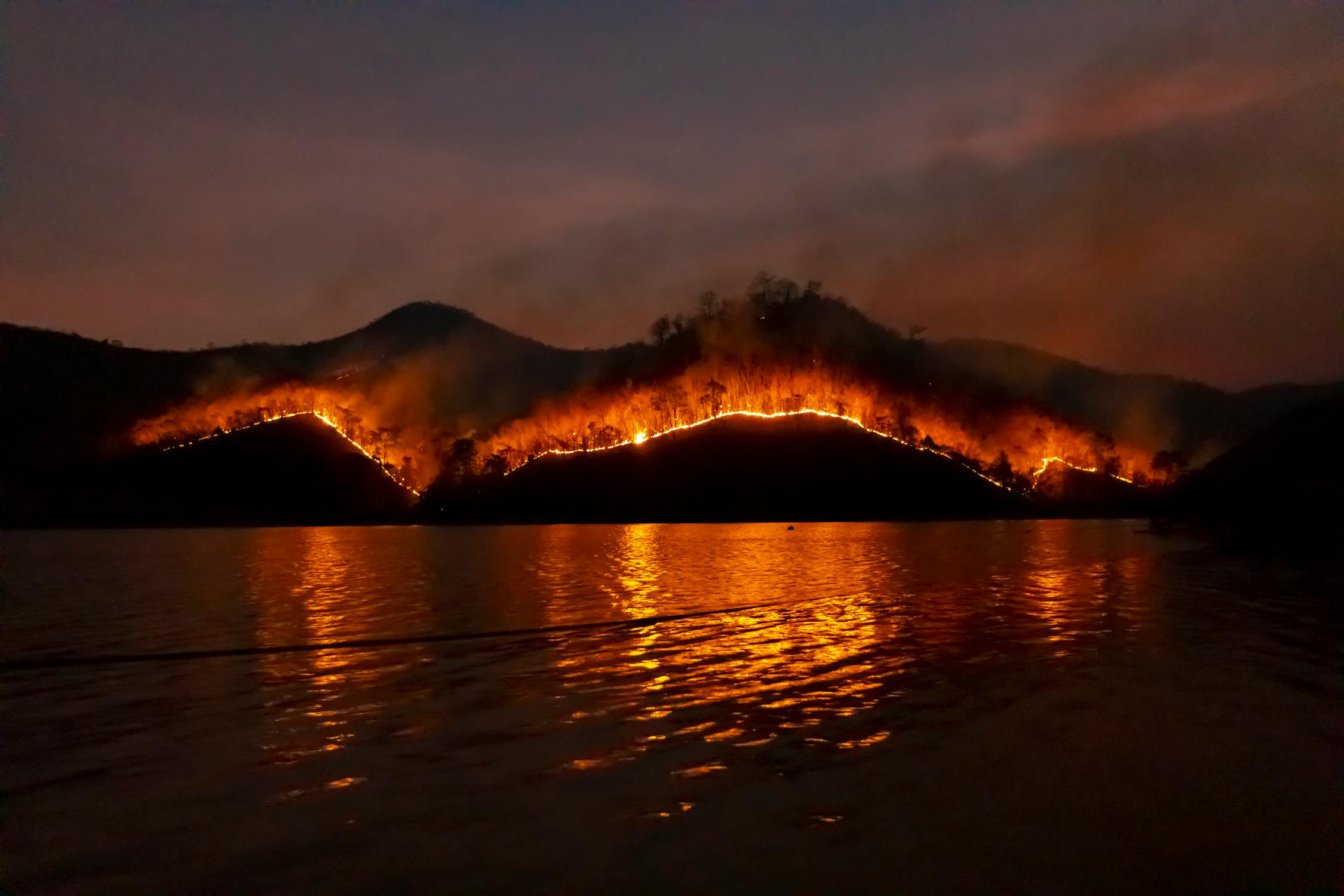Possible but not Plausible to Stop Climate Change - The changes we could make but don't
As we finally start to emerge from lockdown, we can reflect on how one of the few positives of the COVID era was the miracle of seeing our natural world come to life.
Dolphins swam in crystal clear canals in Venice. A record number of leatherback turtles hatched in Thailand. Fallow deer even came to munch on the lawns of the Harold Hill housing estate in east London.
Air pollution dropped massively worldwide, with our major roads and factories falling silent. It was so strange to walk my dog and not hear a constant roar of traffic coming off of the A1. The initial lockdown stopped us all in our tracks but gave our weary planet a rest.
This proved we can make an significant impact on our environment at the drop of a hat (or a global pandemic!). Suddenly, we were no longer stuck in traffic jams polluting the roads trying to get to work. When restaurants and bars closed, we had to get a bit more creative in the kitchen at home, while travelling to shop for groceries much less.

As we have opened back up, the brief respite we gave to our carbon-choked Earth is over.
Air pollution is on the rise again. Big factories across the globe are pumping CO2 back into the atmosphere. It is the return of the 'normal' with devastating effects.
Just in the past week, we've had a record-breaking global heatwave across North America, Scandinavia, Greece, across the Middle East and India. Japan experienced a fatal mudslide.
There were severe storms and flash floods across North America, Europe and Asia, including in Nepal where 500 homes were destroyed.
These so-called natural disasters are sadly increasing and becoming more intense due to climate change.
As environmental activist Greta Thunberg said in her landmark speech, "Our house is on fire".
Wildfires continue to burn, in the Amazon basin but also in the Scottish highlands.
We have to act. Now. |
Atelier Populaire Print #65 - Paris, 1968. What will the 'new normal' look like? |
The United Nations has set a target of keeping below a 1.5°C rise in global temperatures when compared to pre-industrial levels, i.e. 1850-1900. This target was set at the Paris Agreement in 2015. The next major international meeting of world leaders will take place in Glasgow at COP26.
A University of Hamburg study has suggested that sticking to the maximum 1.5 °C rise is still possible by 2050. But what they crucially ask is - is it plausible?
It is all well and good to say that we can make changes to save our planet - but is it realistic that we will, or that our governments or big corporations will?

Wildfire on mountains in Thailand, 2019. By Sippakorn Yamkasikorn.
Our government was the first national government to declare a climate emergency in 2019. But why did Boris Johnson take a plane, the most carbon intensive way to travel, from Westminster to Cornwall for the G7 summit?
I think it is all too easy to point fingers - on a daily basis we could all be making better decisions to use the car less, eat less meat and shop more locally.
At the same time it is not always realistic or plausible that we can do these things. Sometimes we have to get somewhere in a hurry, the weather might be dreadful, we're too busy etc. Sometimes there is a valid reason rather than an excuse.
That said, we may have to sacrifice more for the good of our planet. But what might initially seem like a sacrifice could become the 'new normal'. Just like in our never ending lockdowns, we made a lot of sacrifices but we also saw some rewards, with our wildlife flourishing in our absence, or in terms of new, flexible working patterns with the ability to spend a bit more time with loved ones.
Whatever happens in this climate crisis, we are in it for the long haul.
So - what we can do without losing our minds?
We are in a national state of emergency, which sounds scary and quite frankly so it should! But as individuals, we have to be realistic about what we do on a daily basis to respond to the climate crisis. It is really easy to get into a panic about the planet. I often find myself experiencing 'eco-anxiety' - those thoughts and fears about the future of life on Earth.
It is really important to take time to gather your energies when you get a bit overwhelmed by that sense of impending doom. Here's a few tips to keep yourself sane when you find yourself in that state of eco-anxiety.
-
Take a break from reading the news / social media outlets
-
Abandon screens altogether and go 'offline'
-
Go on your favourite walk - appreciate what we have
-
Have a stretch - try some yoga poses
-
Be mindful - meditate, slow stitch, play with your dog
- Accept that every effort you make is enough - we are all in this together
- Come along to one of our summer workshops, where you can escape it all

Sometimes it all gets a bit too much...



